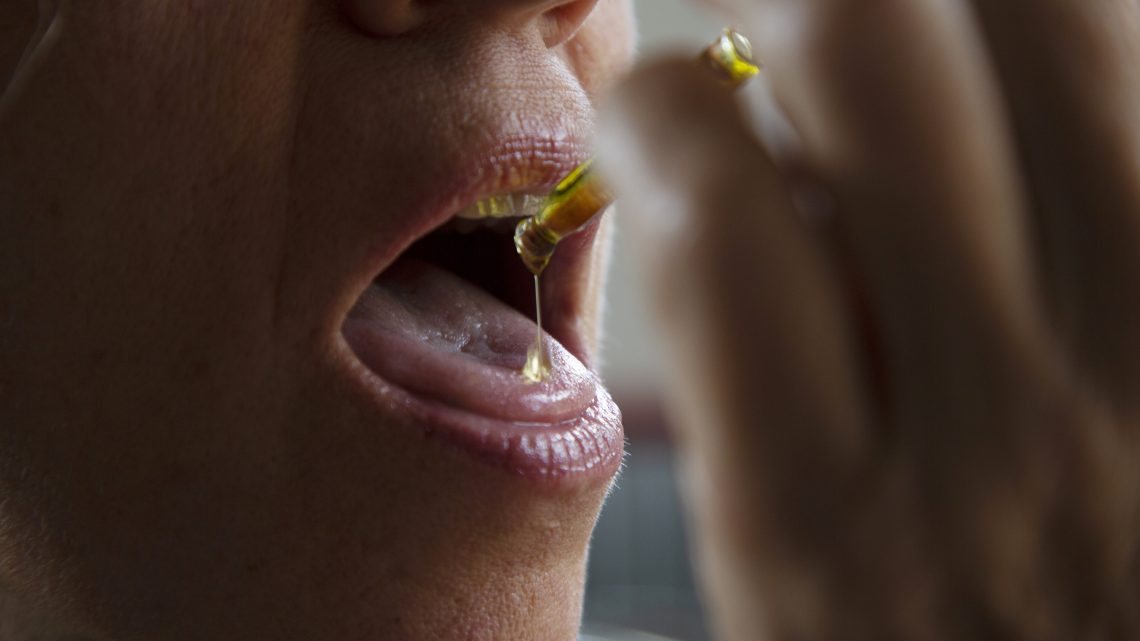
The Bizarre Case of a Death Allegedly Caused by CBD Oil
May 12, 2020Two days after trying a new CBD oil extract to treat her chronic pain, a 56-year-old woman developed an awful rash.
Her primary care physician prescribed antihistamines and prednisone, a common steroid used to treat inflammation. She went home. The rash got worse. From a local emergency room, she went to a hospital burn unit. There, the rash went out of control.
Angry red lesions broke out over 30 percent of her body, including her eyes and groin. Skin peeled from her arms and back. Doctors administered more antibiotics, more anti-inflammatory steroids. They didn’t work. After a month of suffering, she was dead from septic shock, the final result of a rare and extremely serious allergic reaction called Stevens-Johnson Syndrome (SJS), according to an account published February in Case Reports in Ophthalmological Medicine.
Described by the Mayo Clinic as both “rare and unpredictable,” Stevens-Johnson Syndrome is typically triggered by “a medication, an infection or both.” According to the British NHS, among the “medicines that most commonly cause” the affliction is the “oxicam” family of anti-inflammatory drugs. The woman had been taking meloxicam for arthritis, but that’s not what killed her, according to the case report, written by a group of eye doctors from SUNY Upstate Medical University in Syracuse, New York. She had already been on meloxicam without any reported complications, after all.
What set off the fatal allergic reaction, they claim, was the product she had tried. It was a new brand of cannabidiol (CBD) oil she was taking for back pain; she had previously taken other CBD brands without issue. Though the new CBD oil she used was not tested for impurities, either some unknown ingredient in the oil or some reaction triggered by the CBD was the most likely cause of the allergic reaction and subsequent death, the doctors wrote, published under the title “Commercial Cannabis Oil–Induced Stevens-Johnson Syndrome.”
If true, the news that a cannabis product killed someone would amount to the upending of a longstanding claim from weed legalization advocates that the drug is so safe no one has ever died from it. And this wasn’t a case of high-THC cannabis allegedly causing psychosis—it was a possible reaction to CBD oil, an increasingly popular and widely available wellness product in the United States.
Physicians and medical professionals with expertise in cannabis consulted by VICE were divided on the merits of the medical journal article. But though they argued over the value of the case study and what (if anything) it means, one common theme emerged: it’s still the Wild West days for CBD, a drug that is still poorly studied, poorly understood and—with products of wildly varying potency and purity available online in all 50 states, at gas stations and novelty shops and corner bodegas—almost entirely unregulated.
News of the “first death caused by CBD” made ripples in the weed world and on social media. Project CBD, a cannabidiol advocacy organization, published a rebuttal that criticized “CBD skeptics and click-bait confabulators” rushing to blame a cannabis product, while raising the possibility that the oil could have reacted with the woman’s medications to fatal effect.
Peter Grinspoon is a physician on staff at Massachusetts General Hospital in Boston and a professor at Harvard Medical School who frequently blogs about cannabis and other drugs on Harvard’s website (his father is Lester Grinspoon, the Harvard psychiatrist who authored Marihuana Reconsidered, one of the bibles of cannabis-policy reform, in the 1960s). Grinspoon was skeptical that the death had much to do with CBD.
“It's unlikely that this is the first case in 5,000 years of a cannabinoid causing Stevens-Johnson Syndrome (SJS), but it is certainly possible,” he said.
Grinspoon allowed that CBD could have inhibited liver enzymes metabolizing the meloxicam, raising its potency and lowering the body’s defenses, thus triggering the allergic reaction. It’s possible that the CBD, the meloxicam and the other pharmaceuticals the woman was taking could have set off a sort of perfect storm.
But since the SUNY ophthalmologists did not analyze the CBD oil—and offered up theoretical adulterants as a cause, apparently without knowing whether they were in the CBD product or not—“they have no idea, really, what this patient consumed, and it seems sort of intellectually reckless to pin the death on CBD,” Grinspoon said.
“Researchers are always eager to try to be the first ones to tie a death to a cannabinoid as this gets you in the news,” he added.
Some experts were even more dismissive of the case study. “I think the paper is shite,” Jeffrey Hergenrather, a physician and former president of the Society of Cannabis Clinicians, wrote in an email. “Regarding CBD and the association with SJS, I’ve never heard of such a thing.”
The case report did not address what possible contaminant in the offending CBD oil might have been and what it might have done. Nor did it state the size and frequency of the CBD dose taken or any of the patient’s genetic factors that might have been an equal or greater risk factor for Stevens-Johnson Syndrome, he said. Instead, the authors went straight to the CBD—and that, he pointed out, is a classic tell of anti-cannabis bias. “As usual it is easy to publish a case report implicating harm with a cannabis product,” he said. “Cannabis is an easy target for assertions of harm.”
Other researchers similarly pointed to gaps in the knowledge.
“I don’t remember seeing any other case reports associated with cannabidiol, but that being said, we don’t know what else was in the cannabidiol products that might be associated with this type of disorder,” said Ziva Cooper, a pharmacologist and the research director at the University of California, Los Angeles’s Cannabis Research Initiative.
Side effects of drugs like meloxicam are known because “thousands of people” using it “have been tracked. And this has not been the case with cannabidiol,” she said.
The case report notes that the “new liposomal CBD extract spray” came from Natural Native, a CBD company based in Oklahoma. Last November, the company received a warning letter from the Food and Drug Administration. On Facebook and on its website, Natural Native broke several FDA rules for marketing CBD water, marketing CBD products intended for infants and otherwise making scientific claims that suggested CBD was a drug that could help with health conditions ranging from acne to chronic pain to cancer. (CBD is a “drug” in the taxonomical sense, but in the legal sense, a drug needs FDA approval to be marketed as such.)
In this, the company is hardly unique. Making unsubstantiated claims about CBD’s medical benefits or marketing CBD products as medicines or food products in violation of FDA rules is unscrupulous, but also happens often enough that it’s almost become a cannabis industry standard.
In interviews with VICE, Danny Bannister, one of Natural Native’s owners, did not deny crossing the line with the FDA. But nonetheless, he said, the case report could baselessly damage his business. He has been trying, to no avail, to get the title of the paper changed.
Bannister first heard about the case report in late February, when one of his competitors emailed the story to a retail client of his. The title, Bannister pointed out, is “Commercial Cannabis Oil-Induced Stevens-Johnson Syndrome,” which sounds conclusive. Only toward the end of the report’s discussion section do the authors admit that it’s still “unclear if marijuana-derived/CBD products can induce” SJS, and that it’s a subject that requires more study as well as general clinical awareness.
“He should take that assertive assumption out of the title,” Bannister said. “Even turning it into a question. It would be that simple.”
Bannister said he’s been unable to get a response from either the SUNY Upstate doctors who wrote the case study or the editors at Case Reports in Ophthalmological Medicine. (The report’s authors also did not respond to repeated requests for comment from VICE.)
Underlying all this is a lot of uncertainty, and the stark truth that CBD is widely available, poorly understood, and also poorly regulated. Under former FDA Commissioner Scott Gottlieb, the Trump Administration seemed interested in getting a stronger handle on CBD regulation. But Gottlieb stepped down last year, and with COVID-19 seizing the attention of both the agency and the public, the nature of the industry seems unlikely to change anytime soon.
It's true that a woman did die after taking CBD oil, but that doesn't mean that CBD killed her. CBD is safe for the vast majority of people, but that doesn't mean it’s safe for everyone. We simply don't know enough about how CBD interacts with other drugs.
“Drugs kill people all the time. The safety profile of CBD is pretty good, but it is a drug,” said Michael Backes, a Southern California cannabis consultant and author of Cannabis Pharmacy, one of the leading compendiums of the plant’s medical and scientific effects. “There may be a person out there who takes a particular preparation of CBD, and it could kill them. That could happen.”
Follow Chris Roberts on Twitter.


